Related Research Articles

A knight is a person granted an honorary title of knighthood by a head of state or representative for service to the monarch, the church or the country, especially in a military capacity.
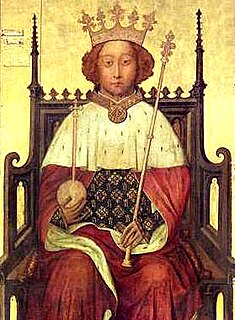
Richard II, also known as Richard of Bordeaux, was King of England from 1377 until he was deposed in 1399. Richard's father, Edward, Prince of Wales, died in 1376, leaving Richard as heir apparent to his grandfather, King Edward III. Upon the death of Edward III, the 10-year-old Richard succeeded to the throne.

John of Gaunt, Duke of Lancaster was an English prince, military leader, and statesman. He was the third of the five sons of King Edward III of England who survived to adulthood. Due to his royal origin, advantageous marriages, and some generous land grants, Gaunt was one of the richest men of his era, and was an influential figure during the reigns of both his father, Edward, and his nephew, Richard II. As Duke of Lancaster, he is the founder of the royal House of Lancaster, whose members would ascend to the throne after his death. His birthplace, Ghent, corrupted into English as Gaunt, was the origin for his name. When he became unpopular later in life, scurrilous rumours and lampoons circulated that he was actually the son of a Ghent butcher, perhaps because Edward III was not present at the birth. This story always drove him to fury.

A fairy is a type of mythical being or legendary creature found in the folklore of multiple European cultures, a form of spirit, often described as metaphysical, supernatural, or preternatural.
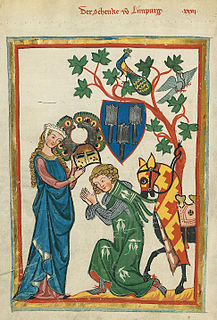
Chivalry, or the chivalric code, is an informal, varying code of conduct developed between 1170 and 1220. It was associated with the medieval Christian institution of knighthood; knights' and gentlemen's behaviours were governed by chivalrous social codes. The ideals of chivalry were popularized in medieval literature, particularly the literary cycles known as the Matter of France, relating to the legendary companions of Charlemagne and his men-at-arms, the paladins, and the Matter of Britain, informed by Geoffrey of Monmouth's Historia Regum Britanniae, written in the 1130s, which popularized the legend of King Arthur and his knights of the Round Table. All of these were taken as historically accurate until the beginnings of modern scholarship in the 19th century.
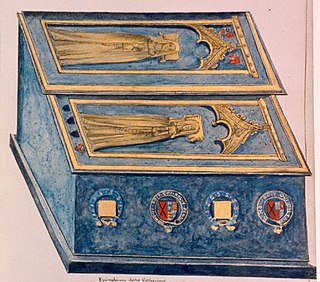
Katherine Swynford, Duchess of Lancaster, also spelled Katharine or Catherine, was the third wife of John of Gaunt, Duke of Lancaster, a son of King Edward III. She had been the Duke's lover for many years before their marriage. The couple's children, born before the marriage, were later legitimised during the reign of the Duke's nephew, Richard II. When the Duke's son from his first marriage overthrew Richard, becoming Henry IV, he introduced a provision [citation needed] that neither they nor their descendants could ever claim the throne of England, however, the legitimacy for all rights was a parliamentary statute that Henry IV lacked the authority to amend.

A fief was the central element of feudalism. It consisted of heritable property or rights granted by an overlord to a vassal who held it in fealty in return for a form of feudal allegiance and service, usually given by the personal ceremonies of homage and fealty. The fees were often lands or revenue-producing real property held in feudal land tenure: these are typically known as fiefs or fiefdoms. However, not only land but anything of value could be held in fee, including governmental office, rights of exploitation such as hunting or fishing, monopolies in trade, and tax farms.

Mary de Bohun was the first wife of King Henry IV of England and the mother of King Henry V. Mary was never queen, as she died before her husband came to the throne.

Eddie Cantor was an American "illustrated song" performer, comedian, dancer, singer, actor, and songwriter. Familiar to Broadway, radio, movie, and early television audiences, this "Apostle of Pep" was regarded almost as a family member by millions because his top-rated radio shows revealed intimate stories and amusing anecdotes about his wife Ida and five daughters. Some of his hits include "Makin' Whoopee," "Ida ," "If You Knew Susie," "Ma! He's Makin' Eyes at Me," “Mandy,” "My Baby Just Cares for Me,” "Margie," and "How Ya Gonna Keep 'em Down on the Farm ?" He also wrote a few songs, including "Merrily We Roll Along", the Merrie Melodies Warner Bros. cartoon theme.

The Book of the Duchess, also known as The Deth of Blaunche, is the earliest of Chaucer's major poems, preceded only by his short poem, "An ABC", and possibly by his translation of The Romaunt of the Rose. Based on the themes and title of the poem, most sources put the date of composition after 12 September 1368 and before 1372, with many recent studies privileging a date as early as the end of 1368.
Joseph Reese Strayer (1904–1987) was an American medievalist historian. He was a student of and mentored by Charles Homer Haskins, America's first prominent medievalist historian.
Sir Richard William Southern, who published under the name R. W. Southern, was a noted English medieval historian, based at the University of Oxford.
Norman Frank Cantor was a Canadian-American historian who specialized in the medieval period. Known for his accessible writing and engaging narrative style, Cantor's books were among the most widely read treatments of medieval history in English. His textbook The Civilization of the Middle Ages, first published in 1963, remains an all-time bestseller in the field.
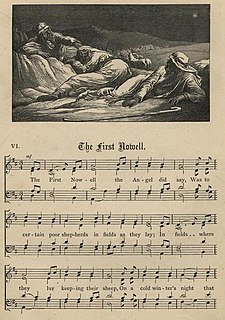
"The First Nowell" is a traditional English Christmas carol with Cornish origins, most likely from the early modern period, although possibly earlier.
Maud de Chaworth was an English noblewoman and wealthy heiress. She was the only child of Patrick de Chaworth. Sometime before 2 March 1297, she married Henry, 3rd Earl of Lancaster, by whom she had seven children.
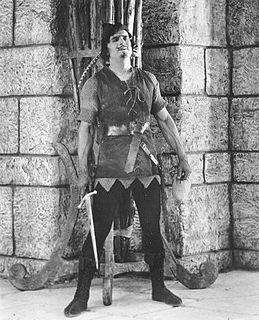
Medieval films imagine and portray the Middle Ages through the visual, audio and thematic forms of cinema.
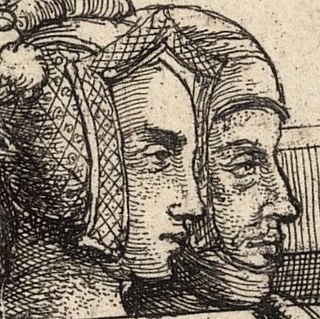
Blanche of Lancaster was a member of the English royal House of Plantagenet and the daughter of the kingdom's wealthiest and most powerful peer, Henry of Grosmont, 1st Duke of Lancaster. She was the first wife of John of Gaunt, the mother of King Henry IV, and the grandmother of King Henry V of England.
Paul A. Cantor is an American literary and media critic. He is currently the Clifton Waller Barrett Professor in the English Department at the University of Virginia.
Last Knight may refer to:
The English invasion of Scotland took place in July 1385 when King Richard II led an English army into Scotland. The invasion was, in part, retaliation for Scottish border raids, but was most provoked by the arrival of a French army into Scotland the previous summer. England and France were engaged in the Hundred Years' War, and France and Scotland had a treaty to support each other. The English King had only recently come of age, and it was expected that he would play a martial role just as his father, Edward the Black Prince, and grandfather Edward III had done. There was some disagreement amongst the English leadership whether to invade France or Scotland; the King's uncle, John of Gaunt, favoured invading France, to gain him a tactical advantage in Castile, where he himself was technically king through his wife but had trouble asserting his claim. The King's friends among the nobility – who were also Gaunt's enemies – preferred an invasion of Scotland. A parliament the year before had granted funds for a continental campaign and it was deemed unwise to flout the House of Commons. The Crown could barely afford a big campaign. Richard summoned the feudal levy, which had not been called for many years; this was the last occasion on which it was to be summoned.
References
- ↑ "THE LAST KNIGHT: The Twilight of the Middle Ages and the Birth of the Modern Era". Publishers Weekly . Retrieved 22 June 2017.
| This article about a non-fiction book on English history is a stub. You can help Wikipedia by expanding it. |